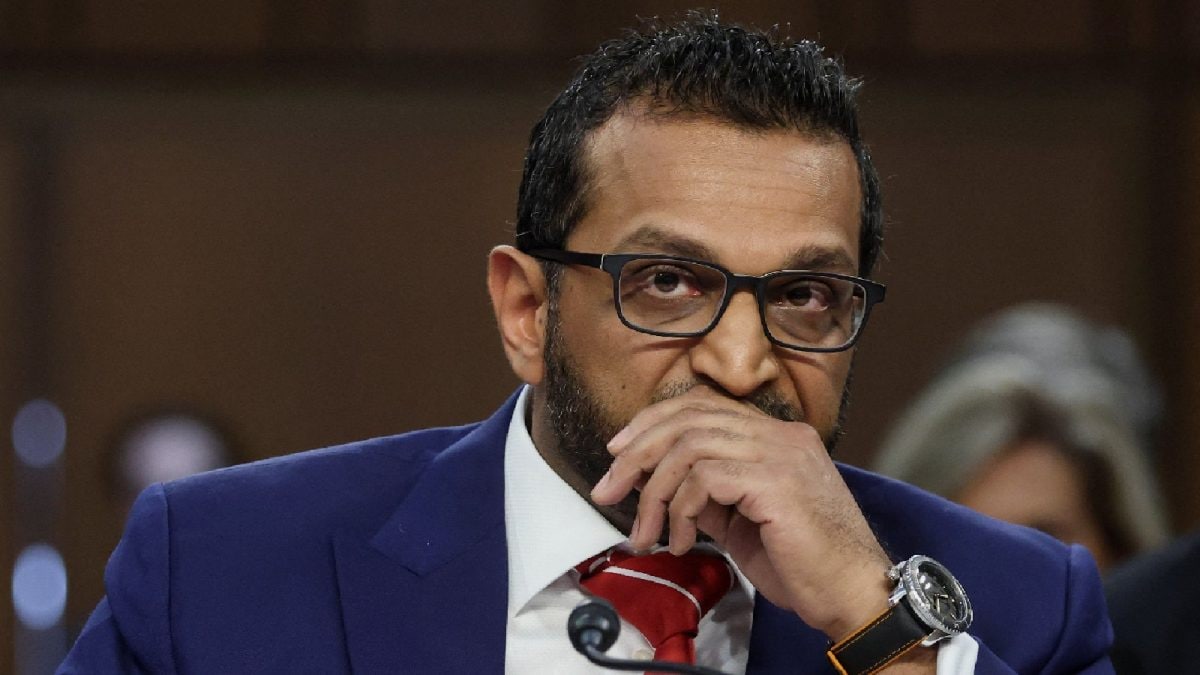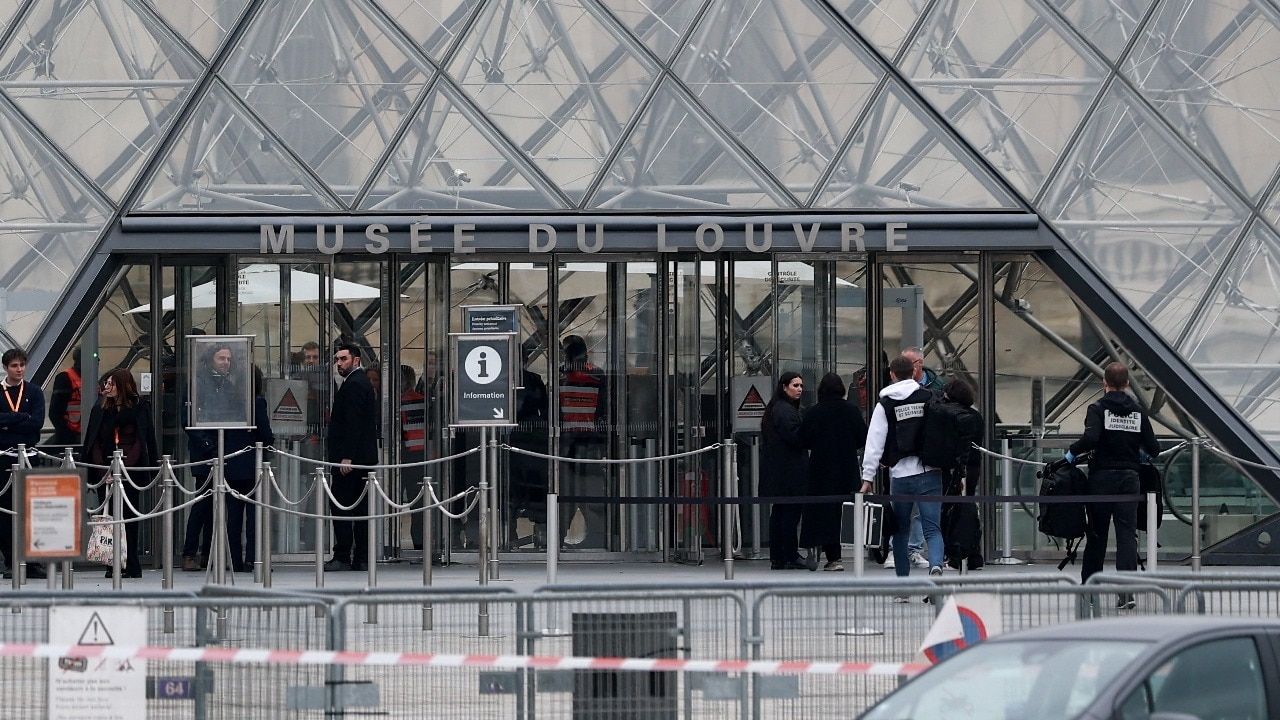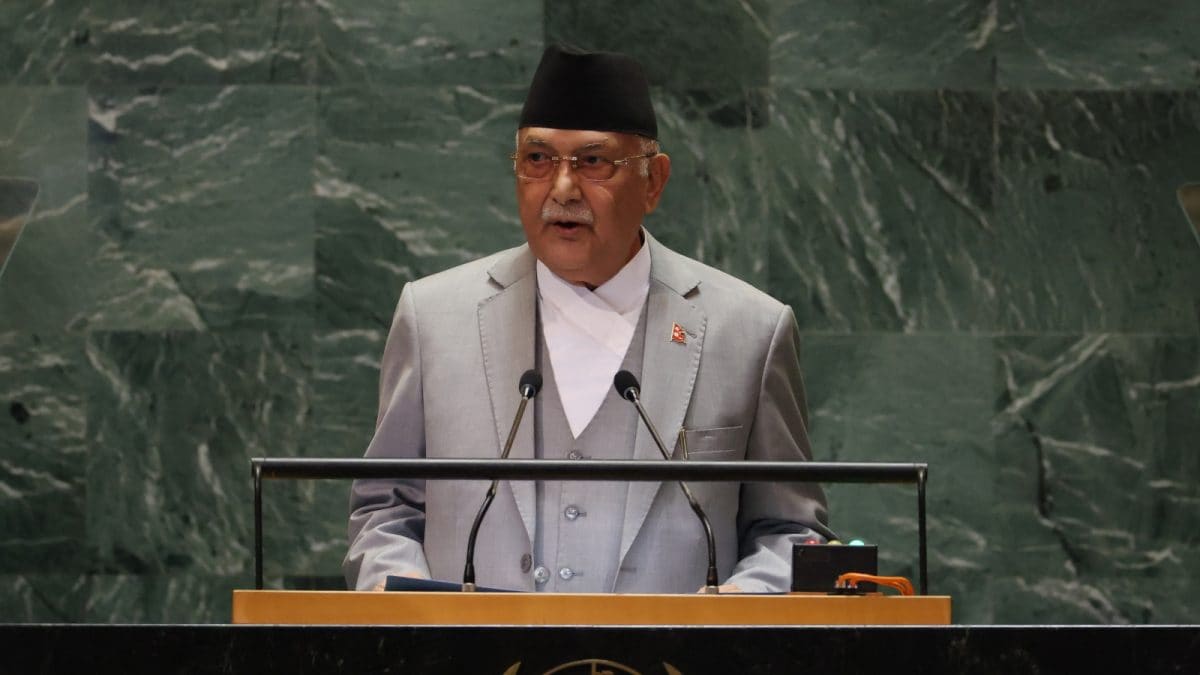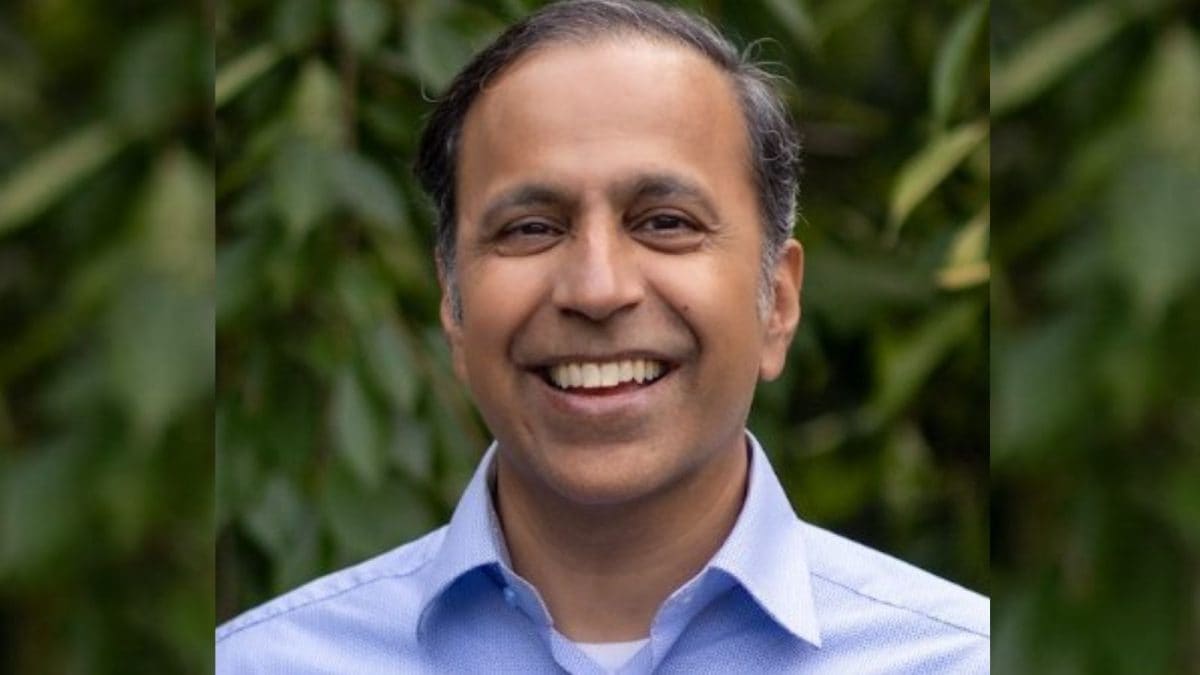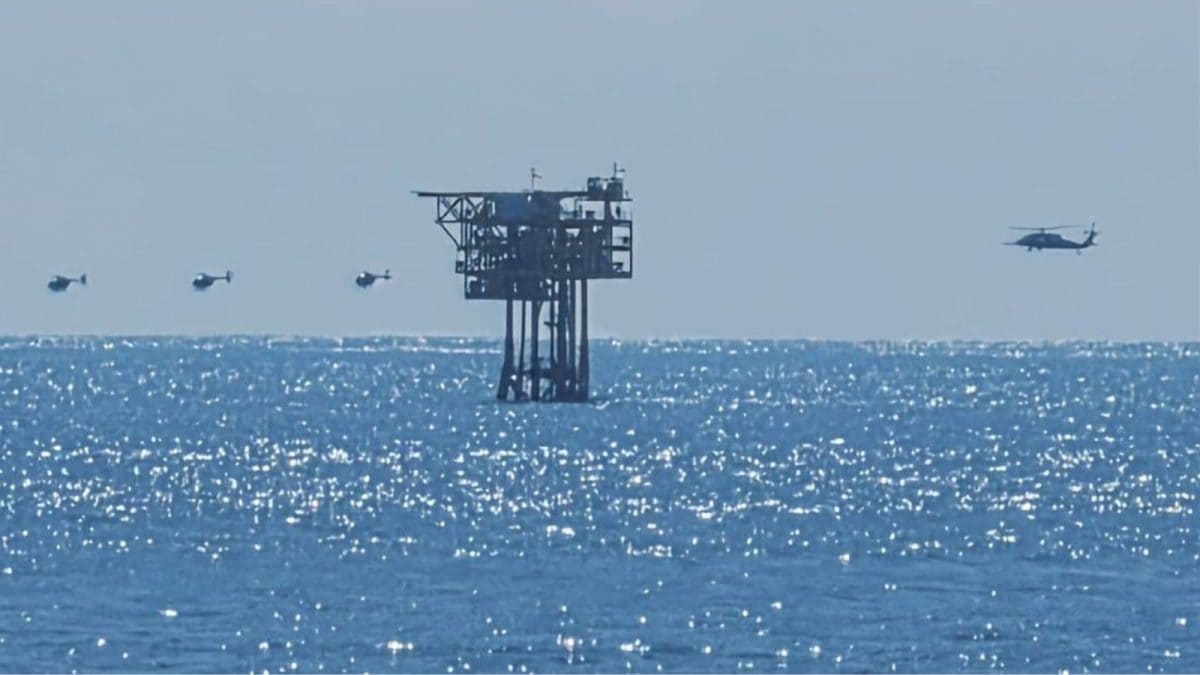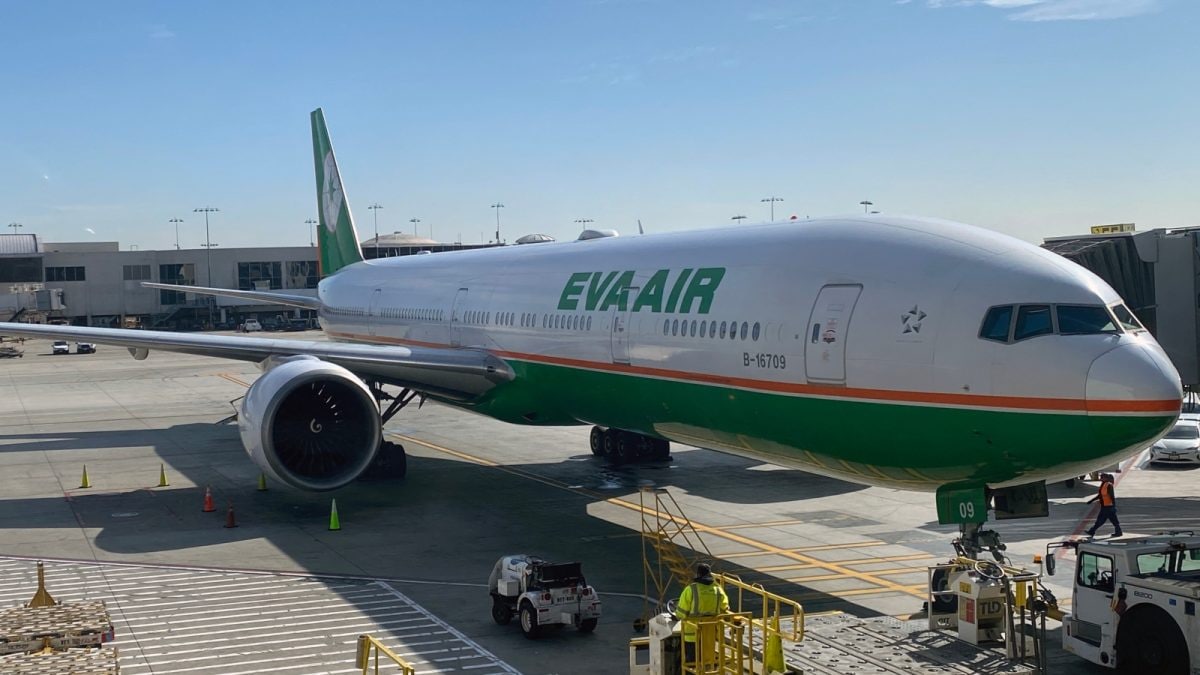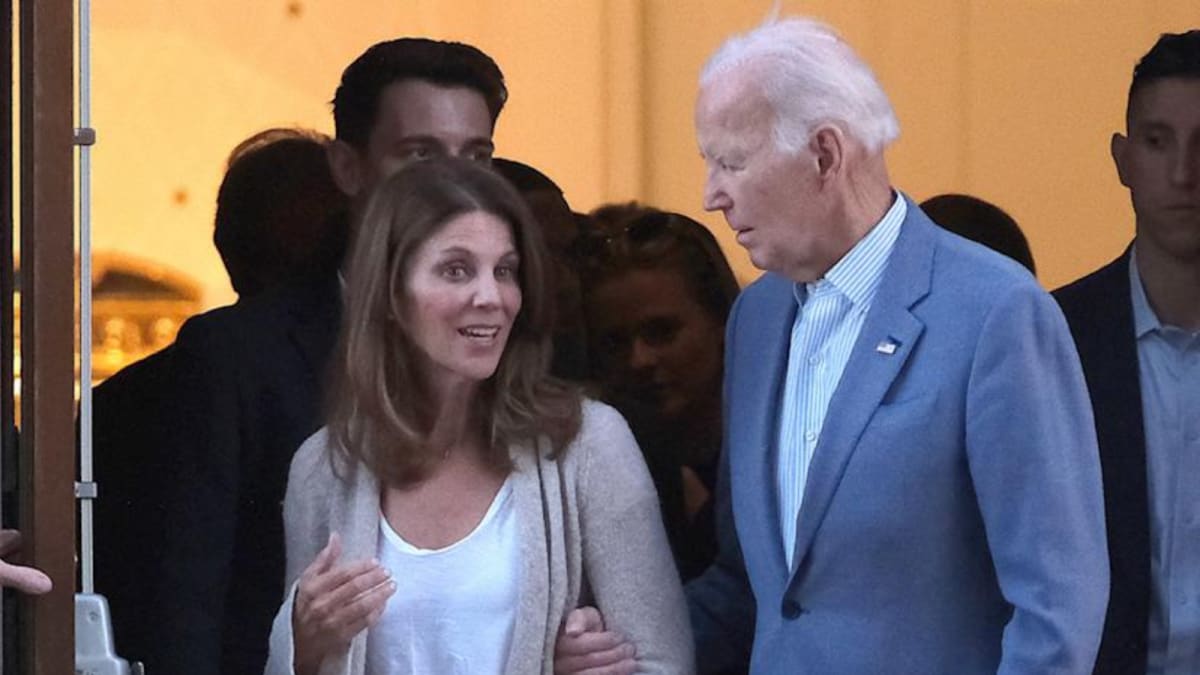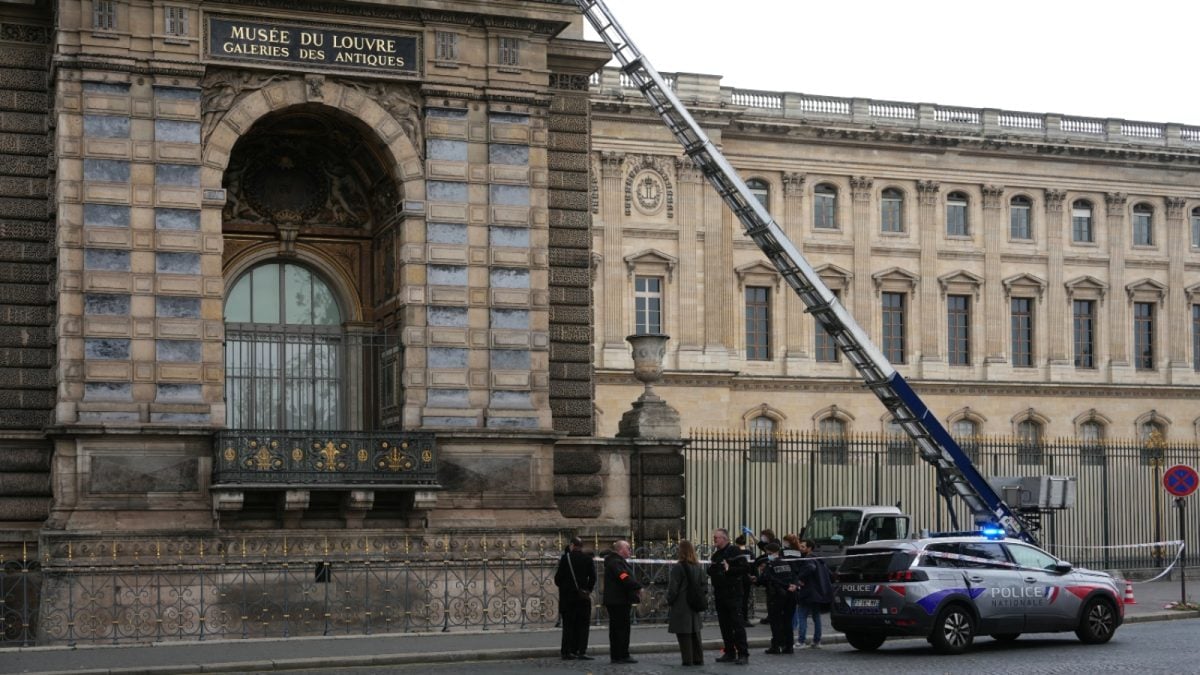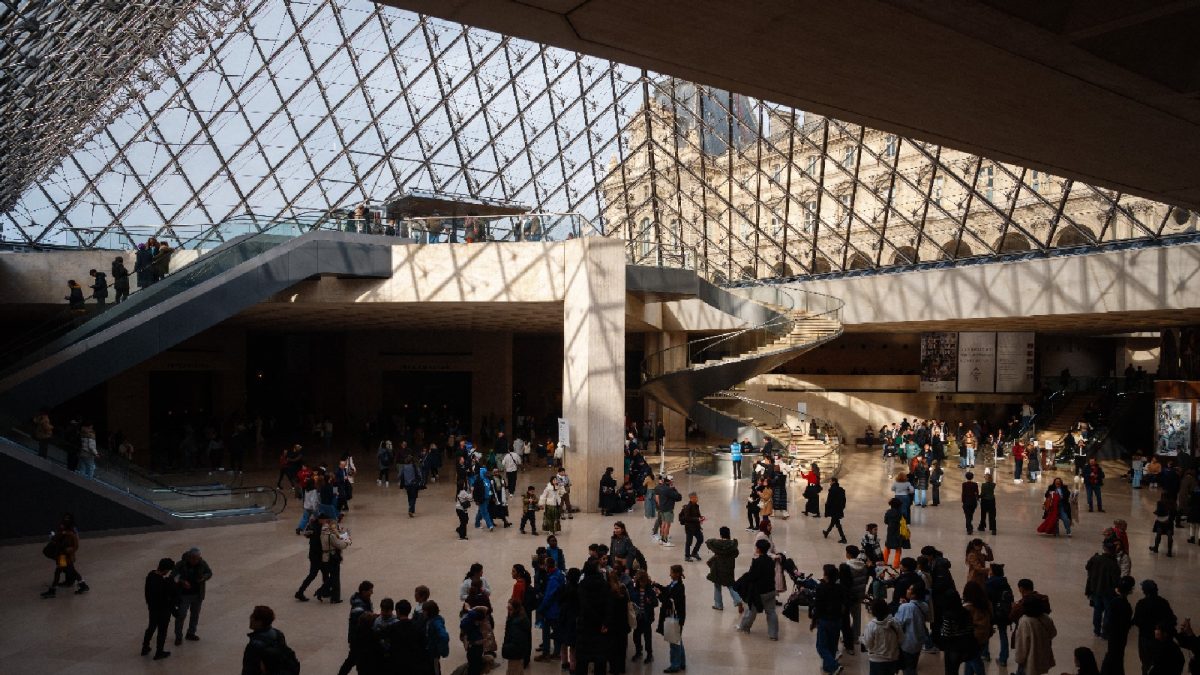Last Updated:September 15, 2025, 12:13 IST
As Trump enjoys royal pomp, Keir Starmer hopes the visit delivers trade wins and investment headlines big enough to offset scandals, protests and questions over his leadership

President Donald Trump with British Prime Minister Keir Starmer, left, at the White House, Thursday, Feb. 27, 2025, in Washington. (AP/PTI)
Donald Trump arrives in Britain this week for an occasion no other US president has ever experienced: a second state visit. He was hosted by Queen Elizabeth II at Buckingham Palace in 2019 during his first term; this time, under King Charles III, the setting shifts to Windsor Castle.
For the UK government led by Prime Minister Keir Starmer, the rare invitation is a diplomatic tool, signalling that London is willing to invest political capital early in Trump’s second presidency to secure trade and investment benefits. For Trump, who has often spoken about how much he enjoys the pomp of such occasions, the visit is a chance to project his global stature with royal pageantry on display.
The state visit is not only about ceremony. Behind the spectacle lie multi-billion-pound nuclear and AI projects, fraught trade negotiations on steel and whisky, and political risks that both Trump and Starmer are trying to manage. This explainer looks at the pageantry, the deals, and the challenges surrounding the visit.
What Pageantry Has Been Planned?
AFP outlined how British state visits follow a carefully choreographed routine meant to impress foreign leaders and signal the depth of ties. Trump and First Lady Melania Trump will be greeted by King Charles III and Queen Camilla, take part in a carriage procession, inspect a guard of honour, and join a state dinner with about 150 guests drawn from diplomatic, business and cultural circles.
These rituals, from the red carpets to the banquet menus, are designed as a show of prestige, and to send the message that the guest occupies a uniquely valued place in Britain’s network of alliances.
What makes this visit stand out is how the script is being adjusted. The UK Parliament will not be sitting because of the annual party conference recess, which means Trump will not deliver an address at Westminster, a moment often offered to foreign leaders during state visits. By contrast, French President Emmanuel Macron did speak to lawmakers during his 2024 visit.
AFP reported that the absence of a parliamentary stage has prompted speculation that the Labour government deliberately timed the visit to avoid potentially awkward moments, given Trump’s polarising reputation in Britain.
Past visits show why the optics matter. In 2019, when Trump was hosted by Queen Elizabeth II, Parliament Square became the centre of mass protests. Demonstrations are once again planned for this week, but Trump’s itinerary keeps him mostly at Windsor Castle and the prime minister’s country house at Chequers, limiting public exposure.
The royal welcome this time will also feature a military flypast and a gun salute. The British government hopes the soft power of the monarchy will appeal to Trump and underline the strength of the UK-US relationship.
Nuclear, Energy Deals Expected
The centrepiece announcements are in civil nuclear power and advanced technology, both framed as areas where London and Washington want to show they are setting the pace globally.
The nuclear agreement will allow Britain and the US to rely on each other’s safety assessments of reactor designs. That might sound technical, but it has concrete implications: instead of a three-to-four-year wait for approvals, projects could move ahead within two. Bloomberg said this streamlined process underpins specific ventures. US firm X-Energy and UK utility Centrica plan to build 12 advanced modular reactors in Hartlepool, northeast England, while Holtec and EDF are preparing to develop data centres in Nottinghamshire powered by small modular reactors.
The pact will also give UK companies such as Rolls-Royce, which has already secured support to build mini-reactors at home, a pathway into the American market. For London, that means turning nuclear innovation into export opportunity, while for Washington, it means additional partners in securing energy supply chains.
The UK government has put the combined value of the nuclear and energy package at more than £50 billion, a figure it hopes will underline the economic scale of the visit. Reuters noted that such announcements are being deliberately timed to coincide with Trump’s trip so that Starmer can present the partnership as part of a “step change" in relations.
AI At The Centre Of The Visit
The headline announcement will be OpenAI’s plan to set up a UK arm of its $500 billion “Stargate" data centre project in Blyth, Northumberland. The scheme, involving Nvidia and British operator Nscale, is being presented as a way for Britain to carve out a role in “sovereign AI", the idea that countries need their own infrastructure to host and train large-scale models rather than relying entirely on foreign providers.
Bloomberg reported that Trump and Starmer are expected to unveil a new US-UK technology partnership at the visit, with Nvidia’s Jensen Huang and OpenAI’s Sam Altman personally backing the initiative.
Reuters further noted that other American firms are also preparing to use the visit as a launchpad. PayPal and Bank of America are among those announcing new investments, while US cloud provider CoreWeave is expected to commit funds to Britain as part of the broader package.
Together, these deals are meant to counter concerns that Britain risks falling behind global competitors in artificial intelligence and data infrastructure. By tying announcements to the optics of a state visit, Starmer’s government wants to present the country as an attractive destination for high-tech investment.
What About Trade And Tariffs?
Trade is another sensitive area on the agenda. Reuters reported that Starmer will push Trump to finalise reductions in tariffs on steel and aluminium, with car tariffs already addressed earlier this year.
Moneycontrol highlighted Scotch whisky as a politically charged issue. The UK is seeking to remove a 10 per cent tariff on whisky exports, which Starmer hopes would bring both economic relief and a symbolic domestic win. The matter had been raised by Scottish First Minister John Swinney and by Mandelson before his dismissal.
For Starmer, delivering progress on tariffs is essential to demonstrate that his strategy of engaging Trump can deliver tangible benefits.
Why Are Both Leaders Under Pressure?
Starmer enters the visit under political strain. His deputy, Angela Rayner, resigned over a tax scandal, while Britain’s ambassador to Washington, Peter Mandelson, was dismissed after revelations about his ties to American financier and convicted sex offender Jeffrey Epstein. Mandelson’s exit is especially awkward because he had helped shape the very tech partnerships now being showcased during Trump’s trip.
Trump arrives with his own vulnerabilities. AFP reported that he is deeply unpopular in Britain, where protests are once again planned, and his itinerary has been arranged to keep him mostly out of central London. Officials fear the joint press conference at Chequers could become dominated by questions about Epstein rather than the economic announcements both sides want to highlight.
Such visits are valuable to Trump beyond policy. Sky News quoted American journalist Michael Wolff as saying such visits are “vanity trips" that make him feel good, offering a distraction from negative headlines. In 2019, despite tensions, diplomats recalled he was “charm personified" once the pageantry unfolded, a reminder of why London is betting that lavish ceremony and high-profile deals can help steer the visit away from controversy.
Seen together, the Windsor spectacle offers both leaders an escape: Starmer hopes the investment deals will shift the focus back to growth, while Trump leans on the pageantry to reinforce his image on the world stage.

Karishma Jain, Chief Sub Editor at News18.com, writes and edits opinion pieces on a variety of subjects, including Indian politics and policy, culture and the arts, technology and social change. Follow her @kar...Read More
Karishma Jain, Chief Sub Editor at News18.com, writes and edits opinion pieces on a variety of subjects, including Indian politics and policy, culture and the arts, technology and social change. Follow her @kar...
Read More
First Published:
September 15, 2025, 12:13 IST
News explainers A Royal Welcome For Donald Trump, Again: What Does Britain Stand To Gain? | Explained
Disclaimer: Comments reflect users’ views, not News18’s. Please keep discussions respectful and constructive. Abusive, defamatory, or illegal comments will be removed. News18 may disable any comment at its discretion. By posting, you agree to our Terms of Use and Privacy Policy.
Read More

 1 month ago
1 month ago


